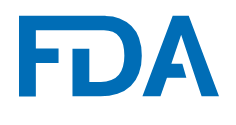On August 18, 2025, the Food and Drug Administration (FDA) issued guidance (Marketing Submission Recommendations for a Predetermined Change Control Plan for Artificial Intelligence-Enabled Device Software Functions) to provide recommendations for predetermined change control plans (PCCPs) tailored to AI-enabled devices. PCCPs are documentations describing what modifications will be made to an AI-enabled device and how the modifications will be assessed. This guidance is aimed at supporting the safe and effective use of AI in medical devices and provides a “forward-thinking approach to promote the development of safe and effective AI-enabled devices.” According to the FDA, “guidance documents do not establish legally enforceable responsibilities. Instead, guidances describe the Agency’s current thinking on a topic and should be viewed only as recommendations.”
AI models evolve as new data becomes available. Under current regulations, modifications that could significantly affect or otherwise affect the safety or effectiveness of the device generally require a new marketing submission pursuant to 21 CFR 807.81(a)(3) and 21 CFR 814.39(a), which can cause delays in the implementation of improvements. With AI-enabled technologies increasingly integrated into healthcare, this guidance provides a framework for how manufacturers can manage future modifications to AI models while ensuring patient safety and regulatory compliance. The press release can be found here.

The guidance focuses on PCCPs: once FDA authorizes a PCCP as part of a device’s marketing submission, manufacturers can implement the specified modifications without submitting a new premarket application each time.
FDA recommends that each PCCP include three components:
- Description of Modifications – a detailed specification of the planned modifications that may be made to the AI model, including the characteristics and performance to be affected.
- Modification Protocol – the methods, verification and validation activities, including pre-defined acceptance criteria, and update procedures that will be followed when implementing the modifications, ensuring the device remains safe and effective.
- Impact Assessment – the assessment of the benefits and risks introduced by the specified modifications, together with the associated risk mitigations.
FDA emphasizes that these components must be specific and tied to the intended use population and environment of the device.
The guidance further emphasizes transparency. According to Section V. of the guidance, device labeling must clearly state that the product has an authorized PCCP, describe modifications that are implemented pursuant to the PCCP, and include information necessary for the safe and effective use of the device as it changes under the plan.
The PCCP provides manufacturers with a clear, predictable pathway to introduce improvements without repeated regulatory delays, so long as the modifications are consistent with the authorized PCCP and carried out in accordance with the Modification Protocol. According to the FDA, “[t]he recommendations in this guidance build on FDA’s longstanding commitment to develop and apply innovative approaches to the regulation of AI-enabled devices.”
Tags
Artificial Intelligence (AI), Medical Devices, U.S. Food & Drug Administration (FDA)
